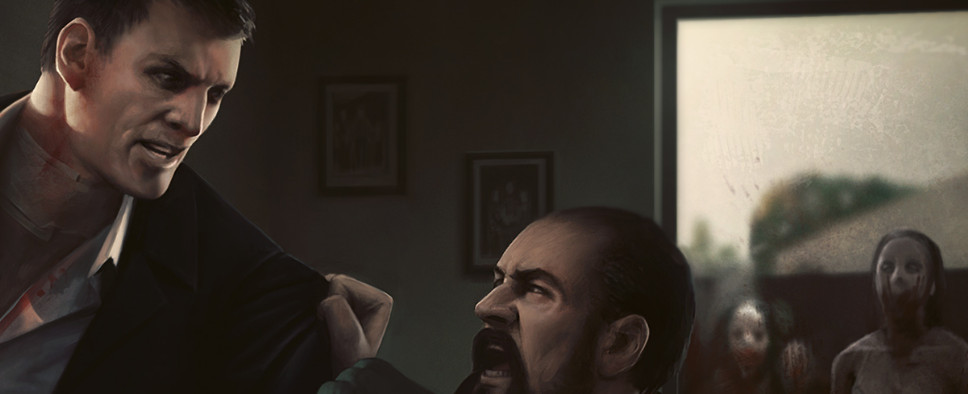Dead State: Reanimated Review
-
Category: ReviewsHits: 20173

Article Index
Introduction
Dead State was released by indie developer Double Bear Productions in December of 2014. Double Bear then proceeded to update their game with several patches, culminating with a "Reanimated" patch (what other developers might call an enhanced edition) in May of 2015. This review is for the game with the Reanimated patch.
In Dead State, you play a survivor during a zombie apocalypse. You're on a plane when the outbreak hits its full stride, and after the plane crash lands in Texas, you find yourself hiding out in a school basement with a few other people, including a police officer and a trucker. From there you have to upgrade the school to make it your base of operations, search for other survivors so you have a community to work with, scavenge for supplies so you can keep everybody healthy and comfortable, and of course survive whatever the new world might throw out you.
Characters
At the start of the game you have to define your main character. This means you get to make some cosmetic choices, like picking a name, gender and appearance, but you also have to spend points on attributes and skills.
There are four attributes in Dead State. Strength controls your melee damage and carry weight. Agility determines your evasion rating and how many action points you have. Vigor is used to calculate your maximum health, and it also adds to your armor class. And Perception influences your ranged accuracy and damage, and also your initiative. So all of the attributes are important for all characters, and there isn't anything that you can easily skimp on.
Meanwhile, the game also has eight skills. Leadership allows you to influence others while maximizing their potential. Mechanical allows you to make upgrades and pick locks. Medical allows you to heal wounds. Melee improves your melee combat abilities. Negotiation allows you to influence others and improve morale. Ranged improves your ranged combat abilities. Science allows you to make upgrades and disable alarms. And Survival improves your activities -- movement speed, encounter detection, and harvesting ability -- on the world map. Just like with the attributes, almost all of the skills are useful, although you can generally pick one out of Melee and Ranged, and one out of Leadership and Negotiation.
Interestingly, characters don't earn experience points for killing enemies or completing quests. Instead, advancement comes in one of two ways. For your main character, you earn skill points from scavenging. As you meet thresholds for different kinds of materials -- like food, antibiotics and fuel -- you earn a skill point. You also earn skill points for giving special luxury items to your allies (to make them happier) and for hacking into data devices (to read documents from just before the apocalypse). Then every time you receive 20 skill points, you also gain an attribute point. For your allies, they simply become more powerful the longer they're with you in the school. You don't get to pick how they spend their points, but they usually come to a crossroads at some point, and you're allowed to pick a direction for them to take.
The attributes and skills each have ten ranks, but while attributes always only take one point to advance, skills take an increasing amount, from one at rank 1 up to six at rank 10. Still, I was able to max out six of the eight skills while I was playing, and I had points in the other two skills as well. So choosing skills isn't all that exciting. You just have to decide which order you want to tackle them in. I think a better system would have doubled the skill costs, so you'd only be able to specialize in 2-3 skills rather than master everything. Meanwhile, you only earn 25-30 attribute points total in the game (including character creation), so that part of character development works better.


